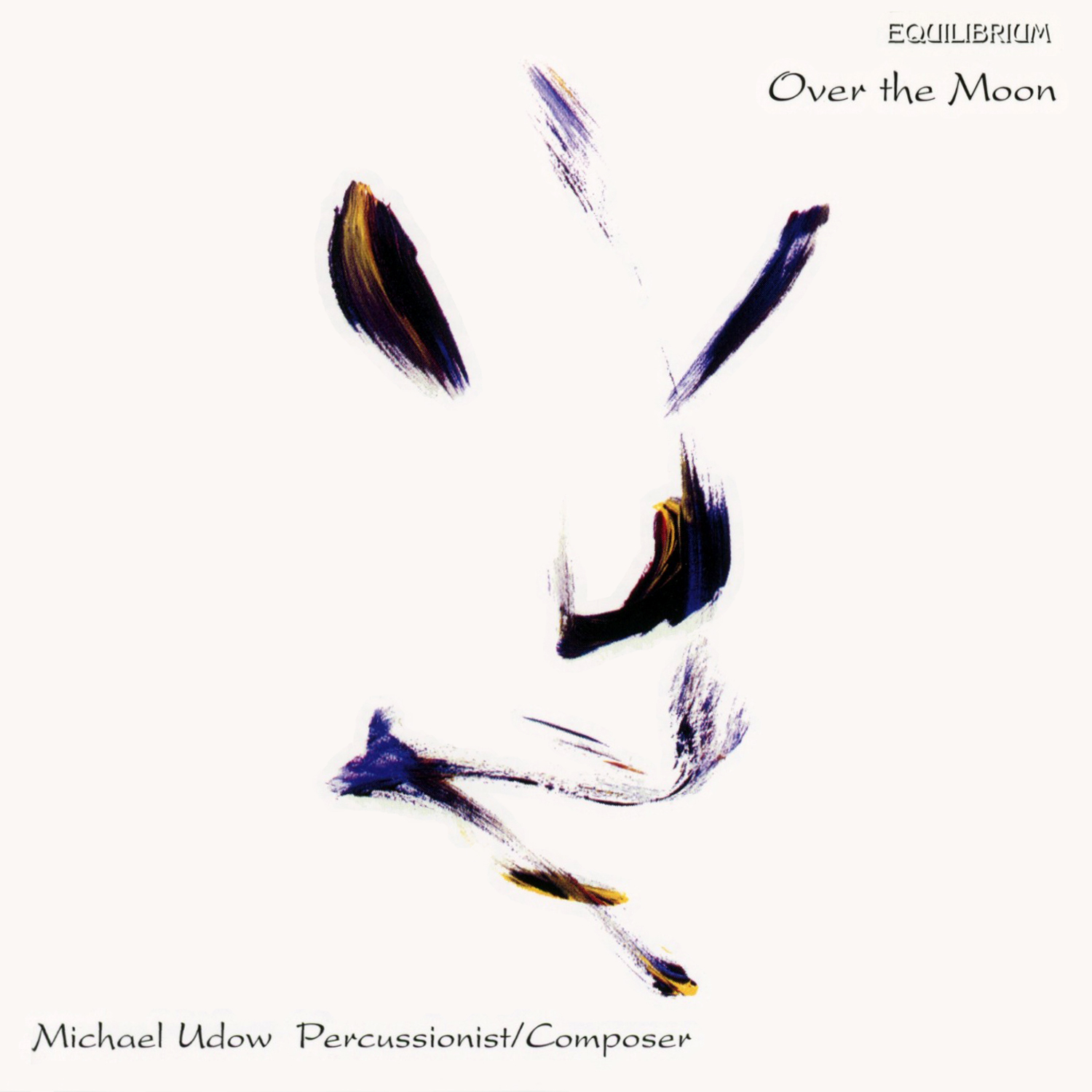Although percussion can be a lot of fun, this is a serious CD. The seriousness is not heaviness, though, perhaps in keeping with the Japanese background to much of the music. In that connection, the first two pieces have no extended or dense movements, just short ones forming non-Western wholes.----
It takes a while to figure out the dance connection to these pieces (the photos help), which leads me to suggest the entire production for DVD. The music itself in Over the Moon ranges from the annoying (oh, that vibraphone motor) to the beautiful, all of it played with deft rhythmic flair. A few numbers in this 12-movement work imply a Japanese sort of drum set.
The intoner in Tennei-Ji is not listed (Michael Udow?). The notes are again confusing unless you are on the inside. At least the poems are given and are even translated into Japanese.
There’s little that’s Western in this piece. Although I can’t judge the Japanese aspects, I find the music by turns charming and moving, often mysterious and colorful. It certainly surprises with its varied interpretations of the haiku poetry. The track listings are all off by one, for no obvious reason. Surely, it’s not hard to get that right.
Stepping on Stars is the longest piece, at 25 minutes. It’s listed for multiple percussion and MIDI. Here is the extended composition, nimbly virtuosic even, in both performance and recording. It comprises several sections of artful elaborations contrasted in texture, character, rhythm, and color. Just past the 10-minute mark comes an unobtrusive representation of the Dies Irae chant. Overall coherence is immediately audible in this fine example of recent percussion music mixed with technology.
Zig-Zag doesn’t in a large sense; but the intricate rhythmic interplay right from the opening earns the title. It soon morphs into a kind of night music. Then resumes a more boisterous layering, increasing in speed and variety to the end. Not as interesting as the previous work but pleasant and sharply played by two of Udow’s former students. Nothing in the notes on this one but autobiography.
Udow’s CD is off in a corner. Despite the fine performing and sound, it’s far from everyone’s corner. But in the fairground of musical acts, if you happened on this tent, you’d probably want in.
FANFARE: Paul Rapoport
It takes a while to figure out the dance connection to these pieces (the photos help), which leads me to suggest the entire production for DVD. The music itself in Over the Moon ranges from the annoying (oh, that vibraphone motor) to the beautiful, all of it played with deft rhythmic flair. A few numbers in this 12-movement work imply a Japanese sort of drum set.
The intoner in Tennei-Ji is not listed (Michael Udow?). The notes are again confusing unless you are on the inside. At least the poems are given and are even translated into Japanese.
There’s little that’s Western in this piece. Although I can’t judge the Japanese aspects, I find the music by turns charming and moving, often mysterious and colorful. It certainly surprises with its varied interpretations of the haiku poetry. The track listings are all off by one, for no obvious reason. Surely, it’s not hard to get that right.
Stepping on Stars is the longest piece, at 25 minutes. It’s listed for multiple percussion and MIDI. Here is the extended composition, nimbly virtuosic even, in both performance and recording. It comprises several sections of artful elaborations contrasted in texture, character, rhythm, and color. Just past the 10-minute mark comes an unobtrusive representation of the Dies Irae chant. Overall coherence is immediately audible in this fine example of recent percussion music mixed with technology.
Zig-Zag doesn’t in a large sense; but the intricate rhythmic interplay right from the opening earns the title. It soon morphs into a kind of night music. Then resumes a more boisterous layering, increasing in speed and variety to the end. Not as interesting as the previous work but pleasant and sharply played by two of Udow’s former students. Nothing in the notes on this one but autobiography.
Udow’s CD is off in a corner. Despite the fine performing and sound, it’s far from everyone’s corner. But in the fairground of musical acts, if you happened on this tent, you’d probably want in.
FANFARE: Paul Rapoport




